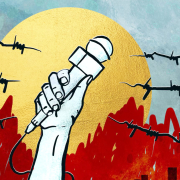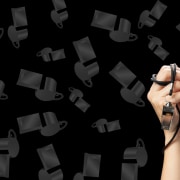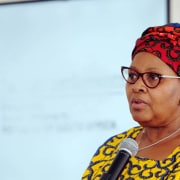|
Getting your Trinity Audio player ready...
|
By Kavisha Pillay
First published on News24
Time is constant; it is represented through change. Time is a concept that we usually take for granted – we believe that it will always be there, that we will always have enough of it, and that there will always be more.
Unfortunately, ours is a country where time tells a long tale of our trauma and, in some instances, triumph. We are constantly trying to race against the clock to tackle that which will stop us from progressing as a nation – inequality and injustice. Looking back at the timeline of South Africa, specific years or dates are forever engrained into our memories. The events of 25 June 1955 (the adoption of the Freedom Charter), 16 June 1976 (the Soweto students uprising), 10 February 1990 (the release of Nelson Mandela), and 27 April 1994 (our first democratic elections) are key moments in our history that will be remembered for generations to come.
2017 will also be a year remembered by many! It was a year that highlighted the strength of our people and the robustness of our constitutional democracy. It was a year where ordinary South Africans demanded an end to state capture, insisted on accountability, and rejected wholesale corruption. There was another moment in our history where we, the people of South Africa, mobilised to cripple a corrupt regime.
The mass build-up of people’s power and resistance from all sectors of society in 2017 was hardly surprising. We should never forget the many milestones and achievements that we have reached as a nation since the advent of democracy; however, we also have to acknowledge that so far, the 2000s represent an era with too many instances of violations of fundamental human rights and abuse of state resources.
Pillars of democracy cannot stand alone
It was during this time that hundreds of thousands of people died unnecessarily of Aids owing to state denialism, violence against women surged, children drowned in pit toilets, mental healthcare users were stripped of their dignity, miners were shot down, social grant beneficiaries fell prey to private sector greed, our criminal justice system collapsed, private companies and individuals captured our state, and corruption and mass looting reached a tipping point. So, naturally, anger at state failure has been brewing for some time now, far and wide in every small corner of our country.
We have to admit that we let our guard down. We believed that the principles and values of our Constitution, as well as the institutions established to protect our democracy, would always prevail in isolation. We believed that these pillars of democracy would be able to withstand even the harshest of blows to their structure and not succumb to patronage and injustice. However, what the 2000s have taught us is that these pillars will only remain rigid if they are propped up by ordinary people, active civil society organisations and a robust and independent media.
It took us an extended period of time to build up a collective resistance and response to state failure and perhaps we waited for too long, but as the 1961 manifesto of Umkhonto weSizwe accurately advances: “The time comes in the life of any nation when there remain only two choices: Submit or fight. That time has now come to South Africa.” While many chose submission, many more chose to fight back. And that we did.
People have the power to fight injustice
The Corruption Watch annual corruption report, titled The Time is Now, provides a timeline of the major political and economic events that took place in 2017. Over the last few years, corruption and inequality bled into the depths of our society and we took many blows as a nation. But 2017 was a year of significant wins which ultimately led to the fatal weakening of a corrupt president and his cronies.
In small but substantial ways, individuals, organisations, institutions and the judiciary played an active role in preventing the further decline of our country. Although the fruits of these efforts were only experienced in February 2018, when former president Jacob Zuma was recalled and soon after when the majority of his corrupt cabinet was reshuffled, Corruption Watch’s work to destabilise a corrupt system has been ongoing since our inception in 2012.
Looking ahead, Corruption Watch will intensify its efforts to root out all forms of corruption and continue to build anti-corruption activism across the country. Very few thought that in a new South Africa, her people would again have to fight back against a morally corrupt regime and inequality.
This must be a lesson that we cannot allow time to lapse and believe that the issues we face as a society will self-correct over time. If anything, time has taught us that there is no better time than now. Now is the time to take action, it is a time to build and most importantly it is a time to progress as a nation. Our leaders might change but, like time, the power of our people and democratic institutions needs to remain constant.
We have to continue in the race for equality and dignity, for we must be the generation that does its best to achieve social justice in our lifetime.
The clock is ticking.
• Kavisha Pillay is campaign manager at Corruption Watch
• Image from Faith47‘s ‘Freedom Charter’ series








